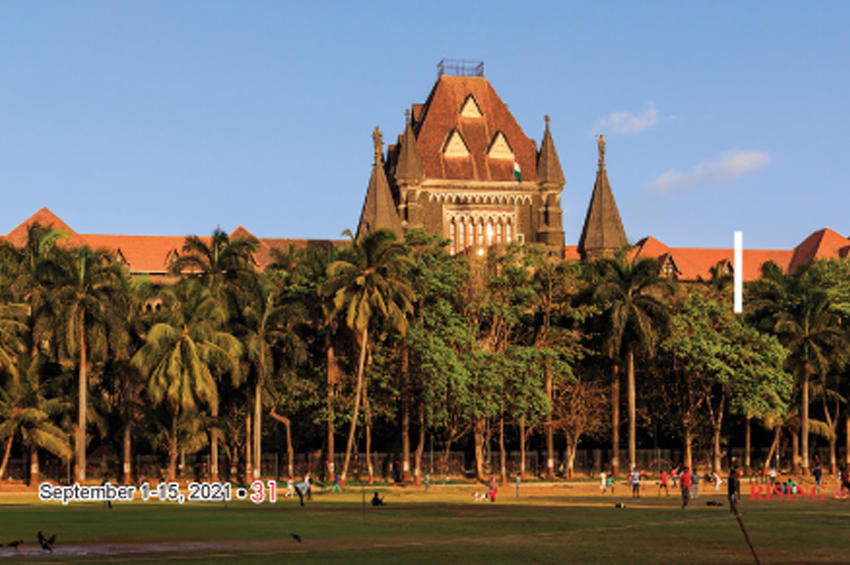In a hugely significant order, the Bombay High Court on August 14 partially stayed the enforcement of the Government of India’s controversial IT Rules ‘Code of Ethics’ (Information Technology Guidelines for Intermediaries and Digital Media Ethics Code) Rules, 2021, even while affirming that “dissent in democracy is vital”.
The High Court stayed Rules 9(1) and 9(3) of the Ethics Code, observing, prima facie, that the said provisions “infringe the fundamental right to freedom of expression” under Article 19(1) (a) of the Constitution. It was also against the substantive provisions of the Information Technology (IT) Act, 2002. The above rules mandated digital news media and online publishers to adhere to the “Code of Ethics” prescribed by the Rules.
A Division Bench comprising Chief Justice Dipankar Dutta and Justice G.S. Kulkarni, passed the interim order in the petition filed by ‘AGIJ Promotion Of Nineteenonea Media Pvt. Ltd., the company that runs the news portal, ‘The Leaflet’ and journalist Nikhil Wagle, premier legal website, Livelaw.in reported recently
“There can be no two opinions that a healthy democracy is one which has developed on criticism and acceptance of contra views. Opinion based on criticism reinforces its acceptance in a democratic society. For proper administration of the State, it is healthy to invite criticism of all those who are in public service of the Nation to have a structured growth; but with the 2021 Rules in place, one would have to think twice before criticising any personality, even if the writer/editor/publisher have good reasons to do so without resorting to defamation and without inviting action under any other provision of law,” the Judges said.
The Judges said that Rule 9 was prima facie an intrusion on the petitioners’ rights under Article 19(1)(a) and hence have stayed classes 9(1) and 9(3), though the Rule 9 is not stayed in its entirety. The Code of Ethics under the Rule applied the “Norms of Journalistic Conduct of The Press Council of India’ and the ‘Programme Code Under the Cable TV (Network) Regulation Act, 1995, to the digital media.
The bench, however, declined to stay Rules 14 and 16 of the IT Rules, 2021, ‘Livelaw.in’ reported. The Additional Solicitor General Anil Singh’s request to stay the order was, however, turned down by the Bombay High Court bench, it added.
While noting there was no “urgency” on the petitioners’ plea against Rule 14 – which deals with setting up of an inter-departmental committee as an oversight mechanism over digital media-, as the committee was yet to be constituted, the bench, nevertheless said the petitioners were at liberty to raise their grievances against Rule 14, as and when the Oversight Committee came into being. The bench also did not find the need to stay Rules 16 and 7, ‘Livelaw.in’, said.
DISSENT VITAL FOR DEMOCRACY
“Dissent in a democracy is vital. It is however, the checks and balances that make a democracy work. There can be no two opinions that a healthy democracy is one which has developed on criticism and acceptance of contra views. Opinion based on criticism reinforces its acceptance in a democratic society. For proper administration of the State, it is healthy to invite criticism of all those who are in public service of the Nation to have a structured growth; but with the 2021 Rules in place, one would have to think twice before criticising any personality, even if the writer/ editor/publisher have good reasons to do so without resorting to defamation and without inviting action under any other provision of law,” the Judges said.
The Court said the Rules, as operational in its present form, exposed a journalist or a News organisation to “punishment even without transgressing the boundaries of reasonable restriction under Article 19(2) of the Constitution of India.” The Judges concurred with the petitioners’ argument that prima facie the IT Rules “can have a chilling effect on freedom of speech and go beyond the scope of the IT Act.” They can be hauled up for anything if “such committee so wishes,” the Livelaw.in reported, quoting from the Court’s order




